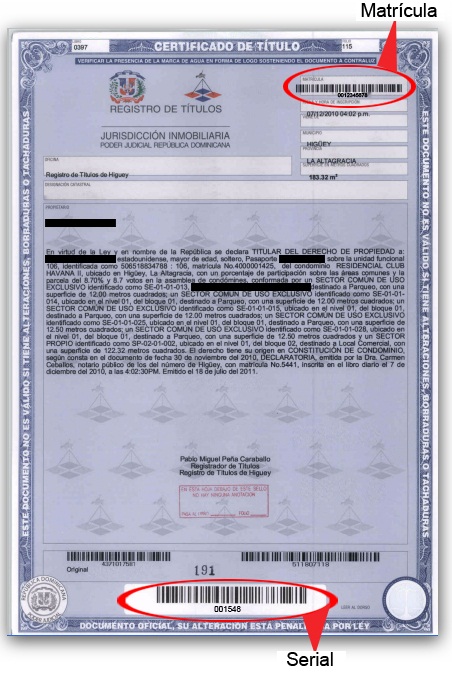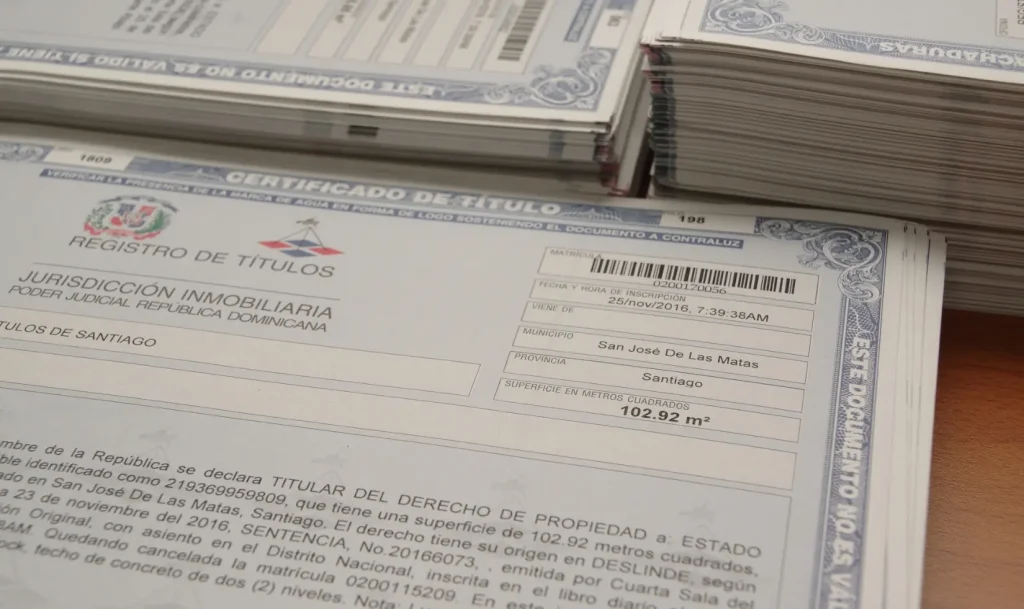The Dominican Republic has fully owned real estate
The title system in the DR is similar to what people are used to in North America and most of Europe.
Titles are registered to the purchaser(s) of any property, (on both the land and building), or in the case of a condo, on the individual unit.
There are no “bank trusts” or “leases” on properties, you are the registered owner.

TITLE INSURANCE GUARANTEE
Defined broadly as a contract of indemnity that, for a single premium, protects the insured, up to a sum, against defects, liens, or encumbrances on a real estate title.
These include risks like fraud, forgery or identity fraud, alteration or loss of title documentation, local planning issues, and clerical and typographical errors affecting the title.
Deslinde” Explained – Survey & Compliance – Real Property Report
Real estate transactions in the Dominican Republic were modernized with Property Registry Law # 108-05, which went into effect on April 4, 2007.
Among other things, the new law requires a “deslinde” for all real estate transactions.
A deslinde is a legal procedure that segregates a portion of land within a parcel from all the other portions within the same parcel.
The segregated portion becomes its own parcel with its own cadastral designation that is guaranteed by a definite title.
No recorded property rights are possible without a deslinde.
The new law established a transitional period; however, beginning April 4, 2009, the Registrar of Titles will not record any real estate transactions of a property without a deslinde.
The current procedure for deslinde has three phases: the survey phase, the judicial phase, and the registration phase.
Survey phase: A certified surveyor measures the property using G.P.S. coordinates after giving notice to all owners of the neighboring properties. The survey is submitted to the Regional Survey Office for review.
If approved, the Office provides the new parcel with a new cadastral designation and allows the procedure to continue to the second phase.
Judicial phase: In this phase, the deslinde goes to the First Instance Land Court, where neighbors or any interested third party may object.
Parties must be represented by an attorney.
The judge rules on the deslinde and, if approved, the Registrar of Titles is authorized to cancel the old provisional title and issue a new definite title with the new cadastral designation.

